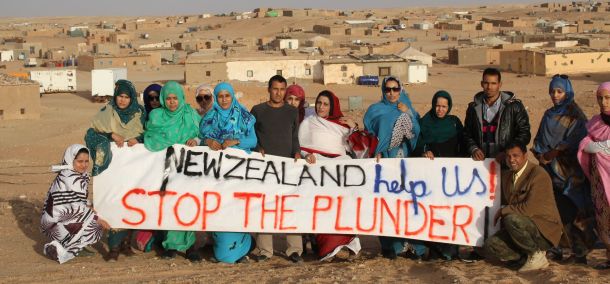
New Zealand’s national pension fund invests in Ravensdown and Ballance Agri-Nutrients – which both import phosphate rock from occupied Western Sahara. That does not align with its statutory obligation to safeguard the country’s reputation, Polisario official says.
Today, 5 March 2020, the UN-recognised representative of the Saharawi people has initiated legal proceedings against the New Zealand Superannuation Fund, the Government Pension Fund of the country. The Fund, which has an estimated value of over $44.5 billion, is an investor of both Ravensdown Ltd and Ballance Agri-Nutrients Ltd: two farmer cooperatives that are among the last few remaining importers of phosphate rock from occupied Western Sahara.
The Fund is managed and administered by a Crown Entity, called the Guardians of the New Zealand Superannuation Fund. The Guardians of the Fund have a statutory obligation to manage and administer the Fund in a manner consistent with avoiding prejudice to New Zealand’s reputation as a responsible member of the world community.
According to Polisario’s representative to Australia and New Zealand, Mr. Kamal Fadel, the Fund is not living up to that obligation through its investments in Ravensdown and Ballance. “The Sahrawi people are determined to protect their natural resources with all available means. This legal action is a message to all who are involved in the exploitation of Sahrawi natural resources that they face legal action, reputational risks and investor withdrawal,” Mr. Fadel says.
Over the last decade, several national pension funds from across the world have proceeded to exclude companies that are involved in the trade of resources from Western Sahara for ethical reasons. These include the Norwegian Government Pension Fund, the AP Funds in Sweden, APG in the Netherlands and the UK’s National Employment Savings Trust.
Morocco allocates land in occupied Western Sahara to green hydrogen investors
Morocco’s ambitions to become a global green hydrogen powerhouse are accelerating. Yet, Rabat is allocating land in a territory it does not legally own.
US eyes minerals in occupied Western Sahara
Seeking to position itself as a key supplier of strategic minerals for Western powers, Morocco has signed a new agreement with the United States that covers Western Sahara’s waters and the critical minerals harboured there.
TAQA-Moeve obtains land in occupied Western Sahara
Morocco’s push for green hydrogen has taken a decisive step forward - on territory it does not legally own.
EU-Morocco Statement: autonomy without self-determination, law without lawfulness
A joint statement that came out of last week’s EU-Morocco Association Council asks readers to believe in a fiction: that an undefined autonomy plan imposed by an occupying power can satisfy the right to self-determination, and that respect for international law can coexist with the systematic ignoring of the EU’s own highest court.



